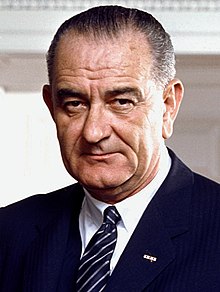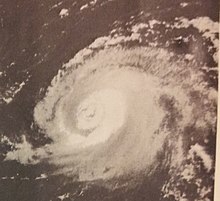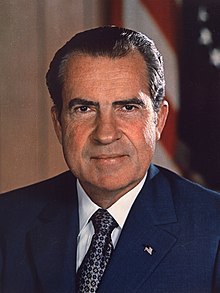The 1960s Portal
The 1960s became synonymous with the new, radical, and subversive events and trends of the period. In Africa the 1960s was a period of radical political change as 32 countries gained independence from their European colonial rulers. Some commentators have seen in this era a classical Jungian nightmare cycle, where a rigid culture, unable to contain the demands for greater individual freedom, broke free of the social constraints of the previous age through extreme deviation from the norm. Christopher Booker charts the rise, success, fall/nightmare and explosion in the London scene of the 1960s. However, this alone does not explain the mass nature of the phenomenon. Several nations such as the U.S., France, Germany and Britain turned to the left in the early and mid 1960s. In the United States, John F. Kennedy, a Keynesian and staunch anti-communist, pushed for social reforms. His assassination in 1963 was a stunning shock. Liberal reforms were finally passed under Lyndon B. Johnson including civil rights for African Americans and healthcare for the elderly and the poor. Despite his large-scale Great Society programs, Johnson was increasingly reviled by the New Left at home and abroad. The heavy-handed American role in the Vietnam War outraged student protestors across the globe, as they found peasant rebellion typified by Ho Chi Minh and Che Guevara more appealing. Italy formed its first left-of-center government in March 1962 with a coalition of Christian Democrats, Social Democrats, and moderate Republicans. Socialists joined the ruling block in December 1963. In Britain, the Labour Party gained power in 1964. In Brazil, João Goulart became president after Jânio Quadros resigned. This is a Featured article, which represents some of the best content on English Wikipedia..
The Coinage Act of 1965, Pub. L. 89–81, 79 Stat. 254, enacted July 23, 1965, eliminated silver from the circulating United States dime (ten-cent piece) and quarter dollar coins. It also reduced the silver content of the half dollar from 90 percent to 40 percent; silver in the half dollar was subsequently eliminated by a 1970 law. There had been coin shortages beginning in 1959, and the United States Bureau of the Mint expanded production to try to meet demand. The early 1960s was a time of increased use of silver both in the coinage and in industry, putting pressure on the price of silver, which was capped at just over $1.29 per ounce by government sales at that price. The silver in a dollar's worth of quarters would be worth more as bullion than as money if the price of the metal rose past $1.38 per ounce, and there was widespread hoarding of silver coins. Demand for the Kennedy half dollar as a collectable drove it from circulation after its debut in 1964. The Bureau of the Mint increased production, helping reduce the coin shortages by May 1965, but government stocks of silver were being rapidly reduced, and threatened to run out by 1968. After extensive study by the Treasury Department, President Lyndon B. Johnson in June 1965 recommended that Congress pass legislation to allow for silverless dimes and quarters, and debased silver half dollars. Although there was some opposition, mainly from legislators representing Western mining states, the bill progressed rapidly through Congress, and was enacted with Johnson's signature on July 23, 1965. (Full article...)This is a Good article, an article that meets a core set of high editorial standards.
Hurricane Debbie was an intense and long-lived hurricane that formed during August 1969. The fifth tropical cyclone, fourth named storm, third hurricane and second major hurricane of the 1969 Atlantic hurricane season, Debbie formed on August 14 in the southern Atlantic Ocean and took a general northwesterly path until turning northward into the central Atlantic. The storm was characterized by numerous fluctuations in intensity, but it still reached winds corresponding to Category 3 status on the Saffir–Simpson scale. The hurricane bypassed the island of Bermuda to the southeast on August 22, before ultimately brushing southeastern Newfoundland with strong winds. It dissipated over the cold waters east of Greenland. Although Debbie had little effect on land, it was extensively researched and was subject to a weather modification experiment by Project Stormfury, in which it was seeded with silver iodide. (Full article...) Selected picture - Attempting to block racial integration at the University of Alabama, Governor George Wallace (left) stands defiantly at the door on June 11, 1963, in an incident known as the Stand in the Schoolhouse Door. Wallace moved aside after being ordered to do so by President John F. Kennedy; years later, he became a born-again Christian and recanted his segregationist views.
Did you know -
Related portalsThis is a Featured article, which represents some of the best content on English Wikipedia..
Richard Milhous Nixon (January 9, 1913 – April 22, 1994) was the 37th president of the United States, serving from 1969 to 1974. A member of the Republican Party, he previously served as a representative and senator from California and as the 36th vice president from 1953 to 1961 under President Dwight D. Eisenhower. His presidency saw the reduction of U.S. involvement in the Vietnam War, détente with the Soviet Union and China, the Apollo 11 Moon landing, and the establishment of the Environmental Protection Agency and Occupational Safety and Health Administration. Nixon's second term ended early when he became the only U.S. president to resign from office, as a result of the Watergate scandal. Nixon was born into a poor family of Quakers in a small town in Southern California. He graduated from Duke Law School in 1937, practiced law in California, and then moved with his wife Pat to Washington, D.C., in 1942 to work for the federal government. After serving active duty in the Naval Reserve during World War II, he was elected to the House of Representatives in 1946. His work on the Alger Hiss case established his reputation as a leading anti-communist, which elevated him to national prominence. In 1950, he was elected to the Senate. Nixon was the running mate of Eisenhower, the Republican Party's presidential nominee in the 1952 election, and served for eight years as vice president. He narrowly lost the 1960 presidential election to the Democratic Party nominee John F. Kennedy; after his loss in the 1962 race for governor of California, he announced his retirement from political life. However, in 1968, he made another run for the presidency and defeated the Democratic incumbent vice president Hubert Humphrey. (Full article...)This is a Good article, an article that meets a core set of high editorial standards.
Sir Michael Philip Jagger (born 26 July 1943) is an English singer. He is the front man and one of the founder members of the rock band the Rolling Stones. Jagger has written most of the band's songs alongside lead guitarist Keith Richards; their songwriting partnership is one of the most successful in history, and they continue to collaborate musically. His career has spanned over six decades, and he has been widely described as one of the most popular and influential front men in the history of rock music. His distinctive voice and energetic live performances, along with Richards' guitar style, have been the Rolling Stones' trademark throughout the band's career. Jagger gained notoriety for his romantic involvements and illicit drug use, and has often been portrayed as a countercultural figure. Jagger was born and grew up in Dartford. He studied at the London School of Economics before abandoning his studies to focus on his career with the Rolling Stones. In the late 1960s, Jagger starred in the films Performance (1970) and Ned Kelly (1970), to mixed receptions. Beginning in the 1980s, he released a number of solo works, including four albums and the single "Dancing in the Street", a 1985 duet with David Bowie that reached No. 1 in the UK and Australia and was a top-ten hit in other countries. (Full article...)Selected article - The 1964 United States presidential election was the 45th quadrennial presidential election. It was held on Tuesday, November 3, 1964. Incumbent Democratic President Lyndon B. Johnson defeated Republican Senator Barry Goldwater in a landslide victory. Johnson was the fourth and most recent vice president to succeed the presidency following the death of his predecessor and win a full term in his own right. Johnson won the largest share of the popular vote for the Democratic Party in history, 61.1%, and the highest for any candidate since the advent of widespread popular elections in 1824. Johnson took office on November 22, 1963, following the assassination of John F. Kennedy, and generally continued his predecessor's policies, except with greater emphasis on civil rights. He easily defeated a primary challenge from segregationist Alabama Governor George Wallace to win the nomination. At the 1964 Democratic National Convention, Johnson selected liberal Minnesota Senator Hubert Humphrey as his running mate. In the narrow Republican contest, conservative Arizona Senator Barry Goldwater defeated liberal New York Governor Nelson Rockefeller and Pennsylvania Governor William Scranton. (Full article...)More Did you know (auto generated)
TopicsCategoriesWikiProjects
Associated WikimediaThe following Wikimedia Foundation sister projects provide more on this subject:
Discover Wikipedia using portals |




























